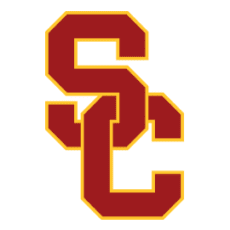The Supreme Court issued its decision on an important case regarding student-athlete compensation on Monday, and it didn’t go the NCAA’s way.
The nation’s highest court unanimously ruled against the NCAA in the case of the NCAA vs. Alston, stating that its strict rules limiting certain kinds of athlete compensation violate anti-trust laws.
Justice Neil Gorsuch wrote the unanimous opinion, upholding the lower court’s ruling that the NCAA was acting unlawfully when it limited member schools from competing for the talent of athletes by offering benefits. Limiting schools from actually, truly competing hurt college athletes.
The ruling is fairly narrow and does not end amateurism in college sports. The NCAA is still allowed to forbid benefits that are not related to an athlete’s education. However, it allows for college athletes to receive education-based benefits like free laptops and paid post-grad internships.
The NCAA is not above the law’
Even though the ruling only affects education-based benefits for college athletes, it could have a much greater impact in the future. By denying the NCAA anti-trust protection, the Supreme Court opened the door for others to file anti-trust lawsuits against the NCAA. If more anti-trust lawsuits are filed, this searing quote from Justice Brett Kavanaugh’s concurring opinion doesn’t bode well for the NCAA.
Even though the ruling is limited, this whole Supreme Court process could not have gone worse for the NCAA. In late March it got roasted during oral arguments, with each of the justices taking shots at the NCAA like it was the world’s largest and least-challenging piñata.
Now it has not only lost, it lost unanimously, and both opinions were written by two of the court’s more conservative justices. As if that wasn’t enough, one of the opinions essentially called the NCAA’s business model “flatly illegal.” This may be just the beginning of the NCAA’s legal woes.
This quote from Justice Kavanaugh cuts deep: "Nowhere else in America can businesses get away with agreeing to not pay their workers a fair market rate on their theory that their product is defined by not paying their workers a fair market rate. The
NCAA is not above the law."— Andrew Brandt (@AndrewBrandt) June 21, 2021
And here's the quote that could ultimately upend the NCAA model: "NCAA couches its arguments for not paying student athletes in innocuous labels. But the labels cannot disguise the reality:The NCAA’s business model would be flatly illegal in almost any other industry in America."
— Gabe Feldman (@SportsLawGuy) June 21, 2021
by Liz Roscher at YahooSports.com
FBO – RialtoTrojan
